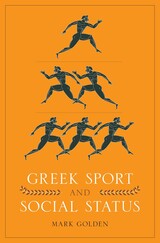
The social structure of contemporary Korea contains strong echoes of the hierarchical principles and patterns governing stratification in the Chosŏn dynasty (1392–1910): namely, birth and one’s position in the bureaucracy. At the beginning of Korea’s modern era, the bureaucracy continued to exert great influence, but developments undermined, instead of reinforced, aristocratic dominance. Furthermore, these changes elevated the secondary status groups of the Chosŏn dynasty, those who had belonged to hereditary, endogamous tiers of government and society between the aristocracy and the commoners: specialists in foreign languages, law, medicine, and accounting; the clerks who ran local administrative districts; the children and descendants of concubines; the local elites of the northern provinces; and military officials. These groups had languished in subordinate positions in both the bureaucratic and social hierarchies for hundreds of years under an ethos and organization that, based predominantly on family lineage, consigned them to a permanent place below the Chosŏn aristocracy.
As the author shows, the political disruptions of the late nineteenth and early twentieth centuries, however, rewarded talent instead of birth. In turn, these groups’ newfound standing as part of the governing elite allowed them to break into, and often dominate, the cultural, literary, and artistic spheres as well as politics, education, and business.

From the ancient Olympic games to the World Series and the World Cup, athletic achievement has always conferred social status. In this collection of essays, a noted authority on ancient sport discusses how Greek sport has been used to claim and enhance social status, both in antiquity and in modern times.
Mark Golden explores a variety of ways in which sport provided a route to social status. In the first essay, he explains how elite horsemen and athletes tried to ignore the important roles that jockeys, drivers, and trainers played in their victories, as well as how female owners tried to rank their equestrian achievements above those of men and other women. In the next essay, Golden looks at the varied contributions that slaves made to sport, despite its use as a marker of free, Greek status. In the third essay, he evaluates the claims made by gladiators in the Greek east that they be regarded as high-status athletes and asserts that gladiatorial spectacle is much more like Greek sport than scholars today usually admit. In the final essay, Golden critiques the accepted accounts of ancient and modern Olympic history, arguing that attempts to raise the status of the modern games by stressing their links to the ancient ones are misleading. He concludes that the contemporary movement to call a truce in world conflicts during the Olympics is likewise based on misunderstandings of ancient Greek traditions.

The author studied and compared a Pentecostal group and a Seventh-day Adventist group in preparation for this work. The question which stimulated the investigation can be stated as a paradox. In the Adventist case, why should persons who firmly believe that God is soon to destroy the world work so diligently and against formidable odds to improve their own secular fortunes? In the Pentecostal case, why should persons who believe that God is available for direct aid in every human contingency not use this power for their own advancement?
In theorizing about the relationship between an individual's position in the socioeconomic system and his sect affiliation, Mr. Schwartz asserts that the specifically ideological component of a creed resides in the ways in which believers conceptualize the meaning of secular problems.
The study as a whole attempts to reveal what makes a special set of beliefs attractive to a person grappling with certain secular exigencies, and how these beliefs affect his view of secular matters. It develops a model of a religious ideology applicable to any study of the relationship between cultural symbols and social structure.
READERS
Browse our collection.
PUBLISHERS
See BiblioVault's publisher services.
STUDENT SERVICES
Files for college accessibility offices.
UChicago Accessibility Resources
home | accessibility | search | about | contact us
BiblioVault ® 2001 - 2024
The University of Chicago Press









